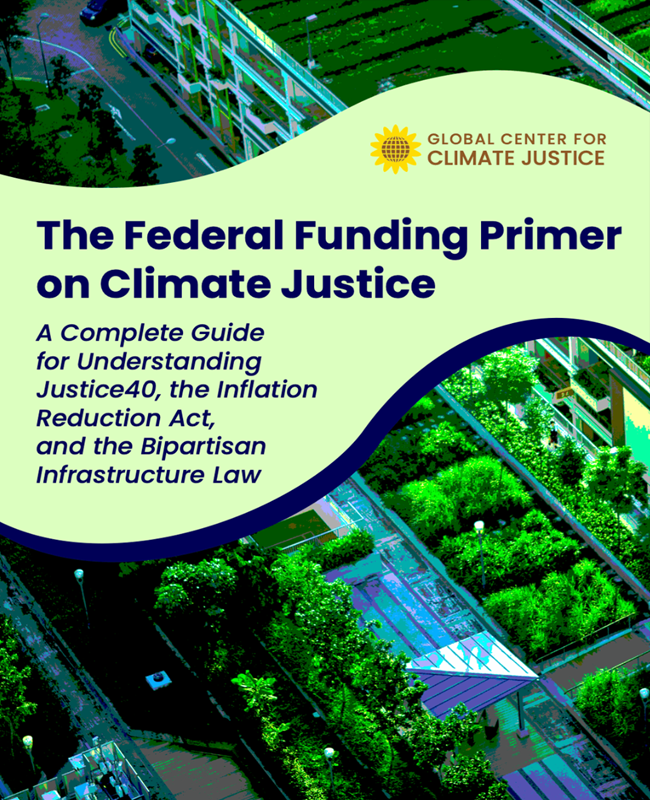A week after assuming office in 2021, the Biden administration issued Executive Order 14008, Tackling the Climate Crisis at Home and Abroad, establishing the Justice40 Initiative. In the year and a half that followed, two additional major pieces of federal legislation were also passed: the Inflation Reduction Act (IRA) and the Infrastructure Investment and Jobs Act (IIJA), also known as “the Bipartisan Infrastructure Law” (BIL). Cumulatively, these once-in-a-generation federal investments provide trillions of dollars for needed infrastructure improvements, clean energy projects, climate resilience, transit upgrades, and much more.
Their rollout has been rapid in an effort to both fund critical investments as soon as possible, and to disburse the money before the 2024 elections. An unprecedented level of opportunity exists to leverage these federal investments for climate justice, to transition our workforce towards clean energy, and to build more sustainable communities. But there is also significant risk that this funding could entrench our dependence on fossil fuels if our cities, Tribes, community-based nonprofits, and other entities eligible to participate in programs are left out.
The authors created this funding Primer because they believe that by explaining these programs, answering key concerns, and directing our communities to the best funding resources that exist they enable them to leverage these funding opportunities to advance their climate, environmental, and economic justice goals. In order to elevate a shared understanding of the climate compromises baked into these investments, the authors also explore specific criticisms of each law, sharing concerns raised by the climate and environmental justice movements. The authors have summarized many of the most helpful resources for staying up-to-date on the latest federal funding developments and opportunities, and collected examples from across the nation of model funded programs. The authors share tips on how to access federal funding, where to find technical assistance, and assess the potential impact on future funding posed by federal politics and the upcoming election. In the final pages of this report, readers will find the authors’ takeaways as they evaluate the rollout of these historic funding opportunities.
More About this Resource
Publisher: Global Center for Climate Justice
Date: May 13, 2024
Type: Report
Sector(s): All
State(s): Nationwide
